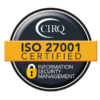One question we hear often from our clients is, what patient information do we collect?
When we sign up patients (and their caregivers) in person at patient events, we have a sign-up sheet that asks a limited amount of information. We don’t want to overwhelm folks that want to stop by our table for just a few minutes. But the information we collect helps us target the appropriate surveys to right patients.
We ask name, contact information (email is most important, as that is how we promise to unobtrusively contact patients), address, phone, age, disease or condition and other disease details, such as when diagnosed, severity, gender, medications, devices or equipment used.
We ask the same questions when patients are referred to sign up on line, with the addition of asking them how they heard about Rare Patient Voice and who referred them to us. Those additional questions help us reward those who have referred patients. Now we also provide organizations with their own link so we can seamlessly track the source of the referrals and make sure the organizations are rewarded. They are a great source of quality referrals!
If you need information that we haven’t collected, we can screen for that. For example, if you need patients of a certain ethnicity, or patients who have been on a clinical trial, that can be included in the screener of the study you are conducting, or we can run a quick feasibility across the panel for $250 (which is deducted if you follow that up with a study using those patients found in the feasibility portion).
We code all the information we collect except for medications and devices. That way we can filter our panel counts to give you accurate feasibility in your proposals. The medication and device information can change so frequently, that we want to rely on screening information (or a feasibility study) to confirm what they are using. But we can search across those fields to give you an idea of how many we have taking a certain medication.
We now provide our panelists with a login and password to update their information, as we try to keep it as up to date as possible.







